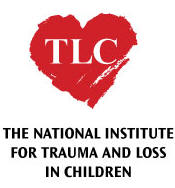According to the National Institute for Trauma and Loss in Children:
- Understanding the physiology of the fear response may help provide you with some insight about why youth exposed to trauma are often complaining of being tired or having little energy. This knowledge can be shared with parents, teachers and others who get frustrated with youth’s behavior that appears to be driven by lack of care or motivation. Instead, we can explain that there is a real physical response happening following acute and chronic exposure to scary experiences.
- Fear is first detected in the brain’s sensory cortexes, something we see, hear or smell. It is then filtered through the thalamus, which sends a signal to the amygdala. This is what many call the “smoke detector” of our brain, which causes you to freeze before you’re even aware of the threat.
- The nervous system then releases chemicals such as cortisol, which in turn helps glucose to be released in our bodies getting us ready to fight or flee. The cortisol also helps to speed up our breathing and heart rate, which pumps oxygen into our muscles.
- Our brain then floods with opiods that mask any pain we might feel at the moment. It won’t be felt until hours or days later when the opiods wear off.
- Once the fear is past, the autonomic nervous system swings into action and calms our bodies. It often overshoots because of the intense stress it is trying to balance. This often leaves us feeling extremely exhausted and with little energy.

No comments:
Post a Comment